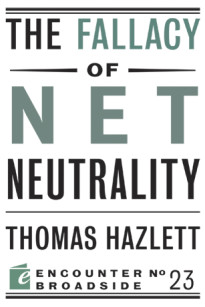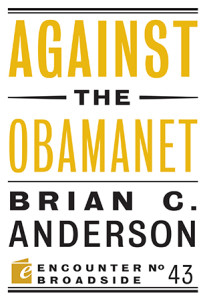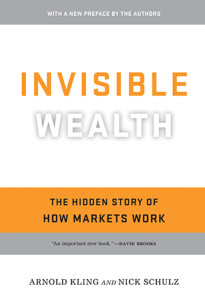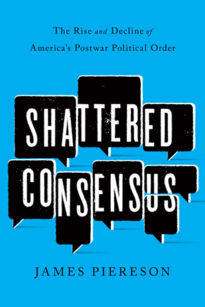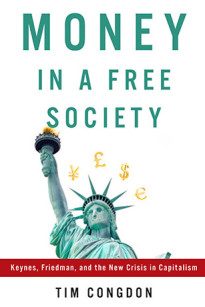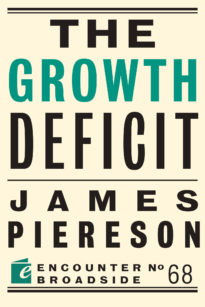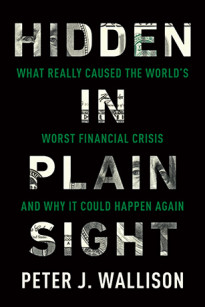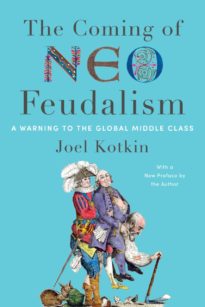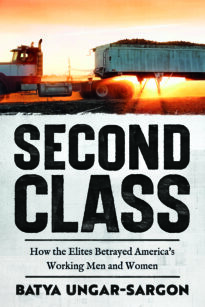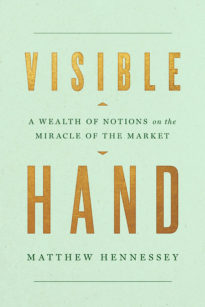To most people, the word “economics” sounds like homework. In Visible Hand: A Wealth of Notions on the Miracle of the Market, Wall Street Journal op-ed editor Matthew Hennessey brings basic economic principles vividly to life in plain English, without resort to numbers, graphs, or jargon. This isn’t Fed policy or the stock market. This is the essential stuff: supply and demand, incentives and trade-offs, scarcity and innovation, work and leisure. A teenager should be able to discuss these things intelligently. Sadly, too few of us can explain them even in adulthood. With humor and wit, Visible Hand equips readers with the essential vocabulary necessary to understand and explain how we make the choices we do, using examples from sources as wide-ranging as Adam Smith, Hennessey’s teenage son, and his high school science teacher. In Hennessey’s hands, economics is far from the dismal science. It’s the sparkling art of decision-making. No homework necessary.
Free shipping on all orders over $40
Visible Hand
A Wealth of Notions on the Miracle of the Market
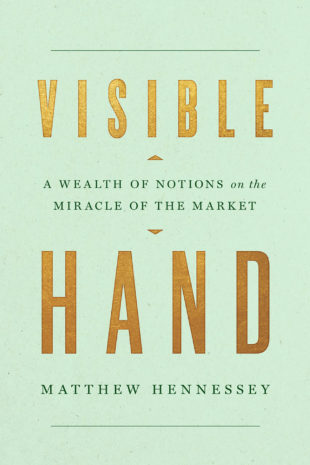
Also Purchase as e-Book
Publication Details
Hardcover / 248 pages
ISBN: 9781641772372
Available: 4/12/2022
- Media: Request a Review Copy
- Academia: Request an Exam Copy
About the Author
Matthew Hennessey is the Wall Street Journal’s deputy op-ed editor.
Praise
Excerpt
Iam not an economist. I’m telling you that now, here at the beginning, because you have a right to know what kind of person you’re dealing with.
This is a book about economics, broadly speaking, and some would say I’m out of my depth. Fair enough. I’m not licensed. I don’t have a PhD in economics. I don’t have a PhD in anything. The gatekeepers of the vast edifice of economic knowledge tend not to look kindly on the opinions of the uncredentialed. They like to keep it complicated. They prefer to dress economic things up in opaque terminology and technical jargon, stashing it all on a high college shelf, well out of the reach of the average person.
This book is not for them.
I don’t pretend to be making a contribution to the academic literature. This isn’t a dissertation or a textbook. It’s just one guy’s view of the world through market-colored glasses. Don’t say I didn’t warn you.
There’s more you should know: I’ve never worked in business, banking, finance, or—until relatively recently—a large private company. I couldn’t tell you a single useful thing about accounting other than that assets equal liabilities plus equity on the balance sheet and that people who study accounting in college tend to nab high-paying jobs right out of the gate. I don’t know how to read an earnings report and I’m useless with a spreadsheet. Stocks don’t interest me much, apart from the possibility that they will pay for my retirement. Cryptocurrency might as well be professional lacrosse for all I care about it, which is not very much. I don’t think the world revolves around career, money, bond prices, or the oil market.
After reading a list of all my non-qualifications, you may be wondering why I have written a book on economics at all. I did it because I suspect many people are afraid of economics, or confused and intimidated by it, just like I once was. For most of my life I avoided the topic entirely. Then I woke up one day and realized that all I’d been doing my whole life was acting like an economist: responding to incentives, weighing trade-offs, making decisions at the margin, and calculating the utility of everything from investing in my education to helping myself to a second scoop of strawberry ice cream. So this is a book about economics for people who, broadly speaking, don’t like economics. Or think they don’t.
I’m the sort of fellow who thinks American-style capitalism works pretty damn well most of the time, especially when alternatives are considered. It has its quirks, it has its shortcomings, it even has its failures, but free markets have over the past three centuries lifted billions of people out of poverty in every corner of the globe. That’s not a meaningless statement. Real people, as alive as you or me, who would otherwise have lived solitary, poor, nasty, brutish, and short lives, instead lived good lives, fruitful lives, healthy lives, prosperous lives—all thanks to the material improvements made possible by free markets.

